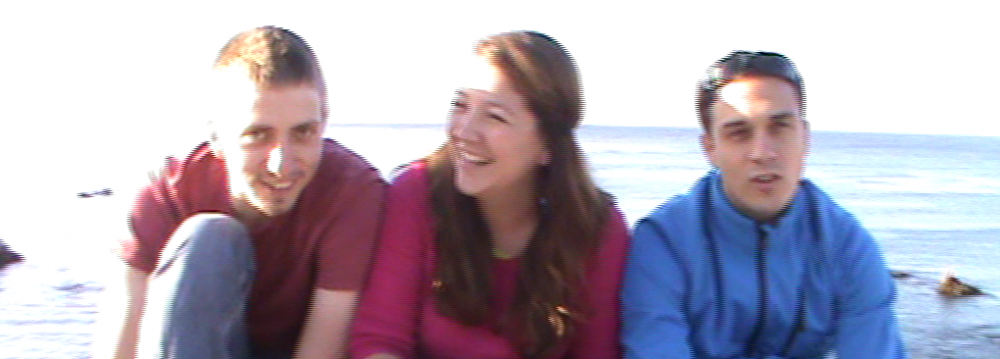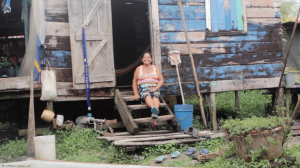Abandonment and resignation, two elements I have seen repeatedly in the eyes of our interviewees in communities we have visited. Not having something so basic as access to clean water and proper sanitation and specially the sinking feeling that you cannot do anything about it will do it. Today we visited a neighborhood/slum called “El Canal”. This neighborhood is located within the city of Bluefields located in the Caribbean/Atlantic coast of Nicaragua.
Bluefields has the appeal of an afro-Caribbean island stuck in colonial times. It reminded me of San Lorenzo, a city in the northern border of Ecuador. Very poor, rough, and neglected but filled with diversity, humidity and taxis. A warm and wet breeze flows through the streets and the fans in our hostel carrying with it reggae beats and Spanish-English-Creole words. “El Canal” is a slum planted in the bay and called like that because there is a little channel that crosses through the neighborhood. It used to be a swamp and now its home for hundreds of families. There is no access for cars and no access to potable water either, just a labyrinth of shacks made of practically “anything you can find” and an alleyway with a narrow concrete trodden path, which connects them. Clear water falls from the sky constantly and black water surrounds our feet (the only day I decide to put on flip-flops, great!) while we trudge through garbage and our shoulders occasionally touch the shacks and latrines next to them.
People gaze at us (carrying tripods, cameras, water bottles, and notebooks) from their beaten-down porch’s and hammocks, with a “what the hell are you doing here?” kind of look, but when we say hi they nod welcomingly with confusion. Do you know what it feels like to wake up at 3am, sick to your stomach (meaning horrible diarrhea from drinking dirty water because the water in her well is contaminated) and having to walk outside your home, through a dark alley-like street to your neighbor’s house, wake him up and ask him if you could use his (fly-filled fetid hole in a platform) latrine? Asks Doña Lidia, a 50-something year old cheery homemaker; while she sits in the doorsteps of her home and kindly tells the camera and us her story. We remain silent because we are filming, but we remain silent in our minds as well, because we do not know what that feels like, and honestly I wouldn’t dare to imagine.
When we speak about having the human right to a life with dignity, we sound off about food security! gender equity!, which is all great. However, at that moment I thought, little things like pooping in the freaking comfort of your own home (even if what you call home is a run-down shack) in a decent toilet is part of that dignity as well, and that every human being should enjoy and many don’t have access to. Yet we forget about those daily and basic parts of life that many people like Doña Lidia around the world have to struggle with, cope and finally (although it wrecks my heart to say it) accept.
Everyday in Nica, these little but real stories sip to the surface, making me the more grateful for having the opportunity to witness them and record them for the entire world to see and do something about it.



